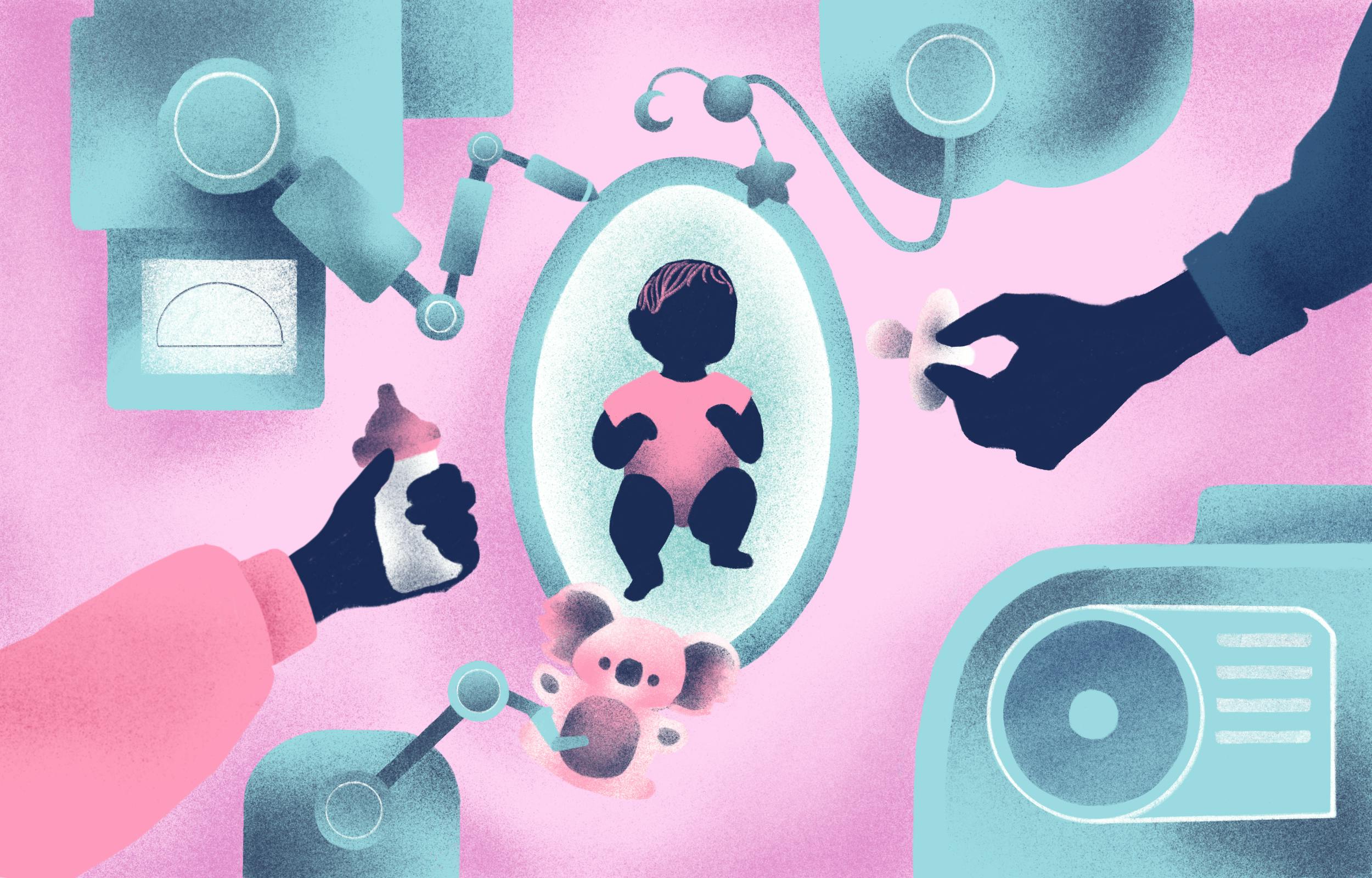New medtech tool helps parenting “suck” less
If you’ve never parented an infant, you may be horrified to learn about this.
A very common, if unpleasant, health practice new parents have to do is sucking congestion out of a baby’s nose. For an adult, congestion is uncomfortable. For a baby, it can keep them from eating, drinking, or sleeping.

The story: The company Frida Baby, already known for its manual SnotSucker product, has now released an upgraded electric version, which lets parents be even more hands-off with this dreaded task.
- For just under $80, the Electric NoseFrida Pro (ENF Pro) automates infant nasal aspiration.
- Unsurprisingly, the ENF Pro is more powerful than the manual snot-sucker and the company’s previous electric product, which sells at half the price of the ENF Pro. The new product adds two additional levels of suction power, making it comparable to “hospital-grade neonatal aspirators.”
The medical device upgrade: Another reason the ENF Pro is an interesting product is its FDA approval.
- The product’s classification as a medical device sets it apart from other nasal aspiration tools like Dr. Noze Best’s NozeBot.
- Per Frida Baby, this difference allows the company to highlight the stricter safety and effectiveness standards their product has had to achieve when compared to typical consumer-grade aspirators.
- Notably, this classification also brings the home nasal aspirator into the same regulated category as other devices new parents rely on, like breast pumps.
Parents’ medtech options: The ENF Pro joins a growing array of devices and digital tools new parents rely on for their and their baby’s health.
- The baby products market is expected to surpass $16 billion by 2026. It’s both a competitive landscape with still a lot of untapped opportunity for innovators.
- Yet, new parents are tricky customer base. They’re often short on time, cost-conscious, and not eager to trust just any company with their bundle of joy’s health and safety.
- That’s why the medtech distinction, even for products that could otherwise easily fit into the consumer-grade category, can make a difference. The higher regulatory burden of medical device classification—and the marketing language permitted therein—can help new parents more easily trust a baby product, even if it’s brand new to them.
Regulatory hot water: However, the growing interest in health-focused baby tech has also gotten some companies into trouble, particularly when it comes to marketing health-focused applications without regulatory approval.
- An example from a previous newsletter: Before its official FDA clearance, smart baby sock manufacturer Owlet received a warning letter from the FDA for allegedly selling a medical device without their approval. The smart sock functions as a pulse oximeter.
Other concerns about baby healthtech include privacy, especially given horror stories like the security vulnerabilities that allowed hackers to access the video feed of popular smart monitor iBaby.
Of course, we’re not too concerned about hackers wanting to access your baby’s electric snot sucker. We’re thrilled more parents will be able to trust this thankless task to well-vetted medtech, and we can’t wait to see what other parenting challenges medtech can make a little less painful.